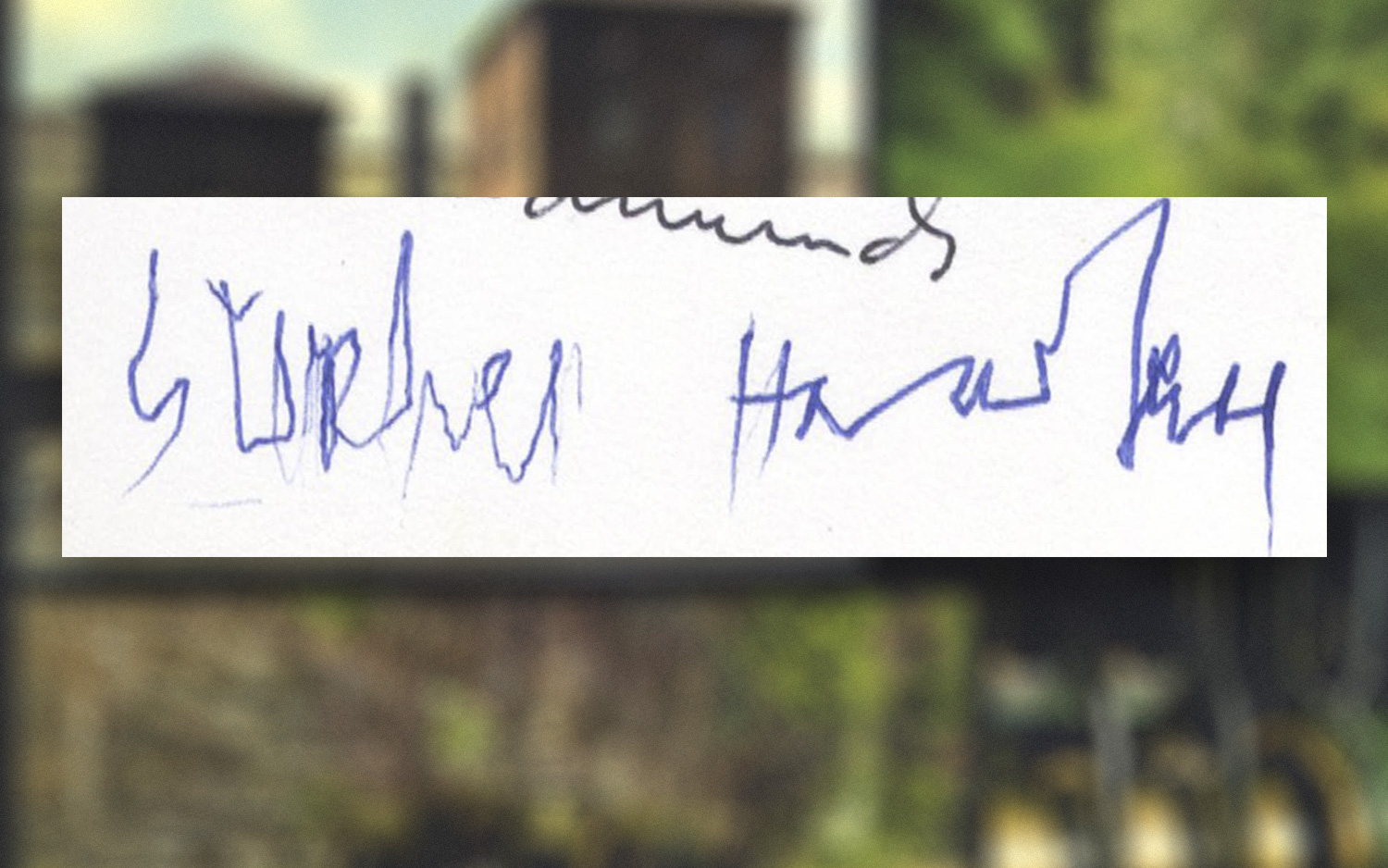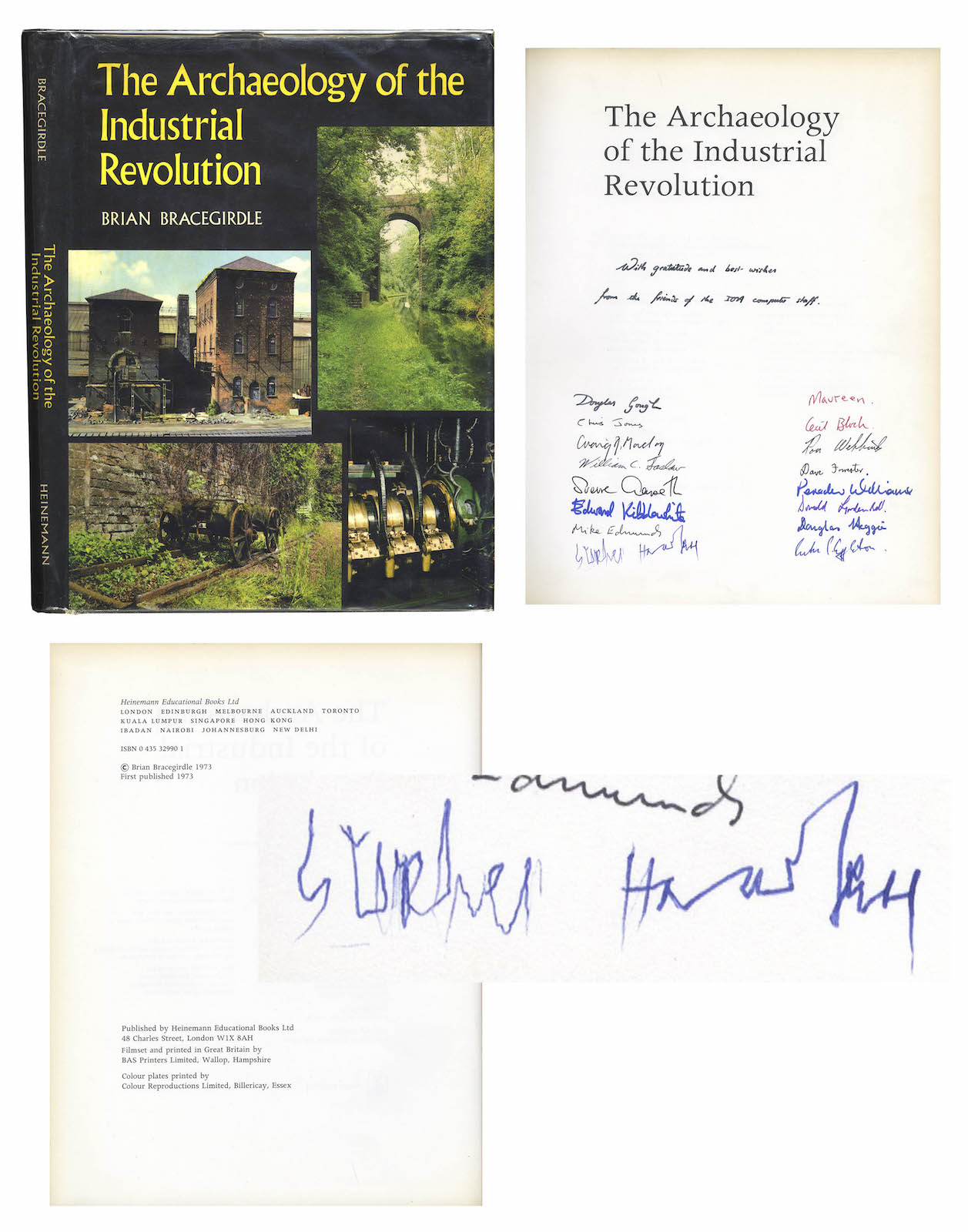Stephen Hawking Signed This Book Before His ALS Took Over. Now It's Up for Auction.

A book that the late physicist Stephen Hawking signed in 1973, back when he was still able to hold a pen and scrawl out his autograph, is hitting the auction blocks.
Hawking, along with several of his colleagues, signed the book as a parting gift to one of their co-workers who was leaving his job as a computer operator at the Institute of Astronomy (IOA) at the University of Cambridge, in England.
Not long after Hawking signed the book, his body became immobilized by amyotrophic lateral sclerosis (ALS), a degenerative nerve condition that's also known as Lou Gehrig's disease. [Stephen Hawking's Most Far-Out Ideas About Black Holes]
The signature can be found on the title page of the book "The Archaeology of the Industrial Revolution," (Heinemann, 1973). Hawking's stilted, but legible John Hancock can be seen in blue ink at the bottom of the page. Up top, one of the well-wishers wrote, "With gratitude and best wishes from the friends of the IOA computer staff."
Hawking spent most of his life immersed in the world of physics, making some of his earliest scientific discoveries about black holes and quantum mechanics at the Institute of Astronomy at Cambridge. He died just over a month ago, on March 13, at the age of 76.
The same year he signed the book, Hawking published his first key cosmology book, "The Large Scale Structure of Space-Time," which he co-authored with cosmologist George Ellis. The book was so successful, it's now considered a classic and has gone through multiple printings.
Hawking was diagnosed with ALS at age 21, and by 1975, he needed a wheelchair to get around, according to Nate D. Sanders Auctions.
Breaking space news, the latest updates on rocket launches, skywatching events and more!
Bids for the 9 by 11.25-inch (23 by 28 centimeters) book start at $28,000. Bidding ends at 8 p.m. EDT on Thursday (April 26). The item comes with an explanation of its provenance, described by the recipient of the book, which is a first edition.
The auction house bills the rare signature as "a fantastic item, captured during the brief time that Hawking's physical condition was deteriorating but his intellectual achievements were rapidly accelerating."
Original article on Live Science.

Laura is an editor at Live Science. She edits Life's Little Mysteries and reports on general science, including archaeology and animals. Her work has appeared in The New York Times, Scholastic, Popular Science and Spectrum, a site on autism research. She has won multiple awards from the Society of Professional Journalists and the Washington Newspaper Publishers Association for her reporting at a weekly newspaper near Seattle. Laura holds a bachelor's degree in English literature and psychology from Washington University in St. Louis and an advanced certificate in science writing from NYU.


